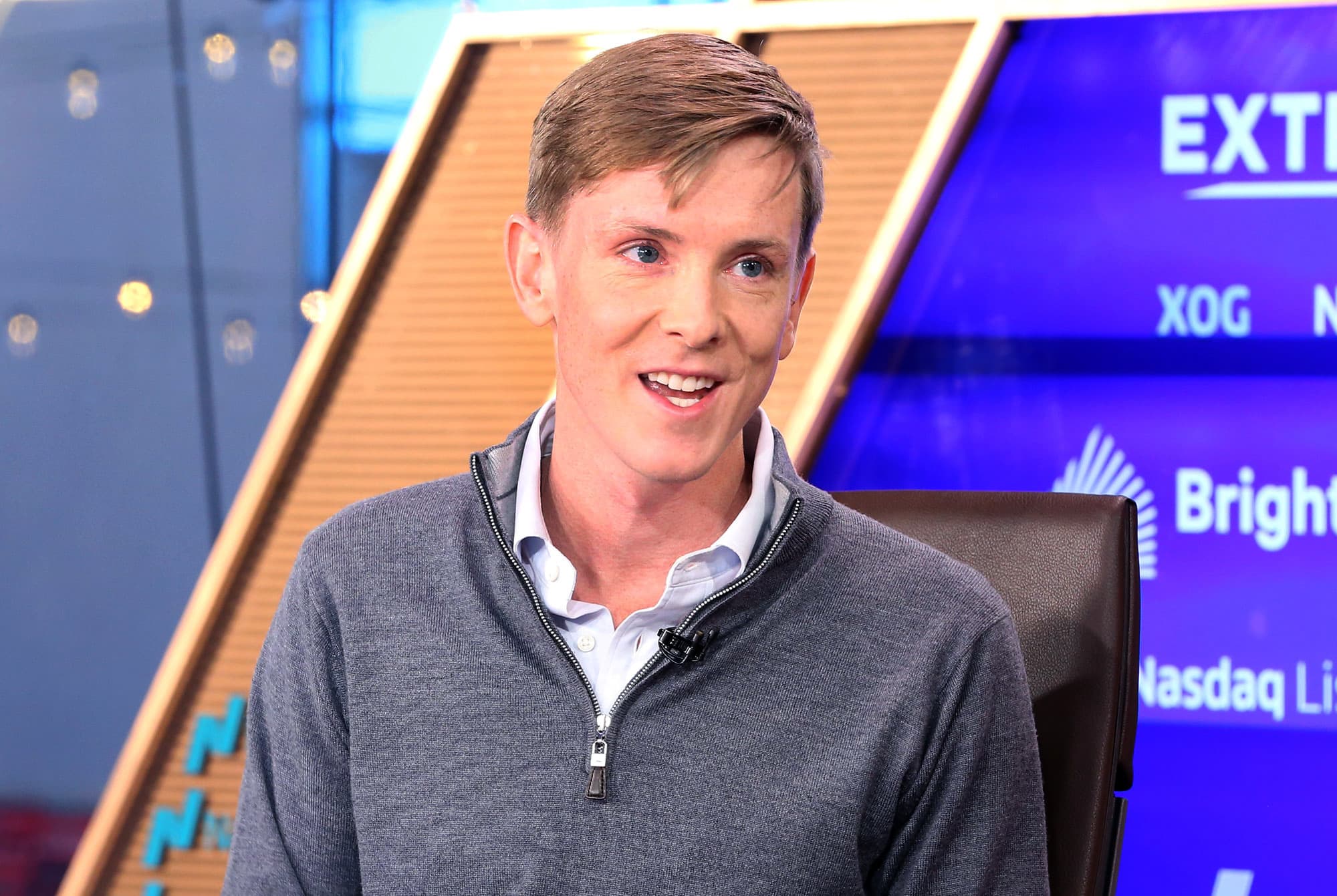Chris Hughes: The Tech Visionary Who Helped Build Facebook and Fights for a Fairer Future

Dive deep into the life of Chris Hughes, Facebook co-founder and economic reform advocate, as we explore his journey from tech innovator to passionate voice for wealth equality.
The Early Life and Academic Journey of Chris Hughes
Chris Hughes is a name that might not immediately ring bells like Mark Zuckerberg or Elon Musk, but his story is nothing short of extraordinary. Born in Hickory, North Carolina, Chris grew up in a middle-class family. From the get-go, it was clear he had a sharp intellect and a curious nature. His parents were a paper salesman and a schoolteacher, and they placed a strong emphasis on education. Hughes absorbed this mindset and pushed himself academically, eventually making his way to the prestigious halls of Harvard University.
At Harvard, Chris Hughes didn’t just attend classes; he immersed himself in an environment teeming with ideas and innovation. It was here that his path would cross with other bright minds—most notably, Mark Zuckerberg. Their meeting wasn’t just a stroke of luck; it was a spark that would later ignite one of the most influential platforms in modern history: Facebook.
But even in those early days, Hughes wasn’t just about coding or business strategy. He was interested in communication, sociology, and how technology could influence society. He studied history and literature, which gave him a broader view of the world—something that would shape his worldview and future ambitions in a big way.
The Facebook Chapter: More Than Just a Co-Founder
When Facebook was just a fledgling idea in a Harvard dorm room, Chris Hughes was right there beside Mark Zuckerberg and Dustin Moskovitz. He wasn’t the main coder, nor the financial wizard behind the curtain. Instead, Hughes became the de facto spokesperson and strategist. He managed public relations, user engagement, and shaped how the product resonated with new users.
In many ways, Chris Hughes was Facebook’s original evangelist. He had a unique talent for communicating complex ideas in a simple, engaging manner—a skill that helped Facebook scale from a college experiment to a global phenomenon. While others focused on the technical and expansion aspects, Hughes was laying the groundwork for what would become the Facebook brand.
His time at Facebook wasn’t long—he left in 2007—but it was incredibly impactful. By the time he exited, he had amassed significant wealth, which would later become a key driver for his next big mission: fixing what he saw as a broken economic system.
Life After Facebook: Searching for Purpose Beyond Profit
After leaving Facebook, Chris Hughes could have taken the usual path—start another tech venture, invest in startups, or simply enjoy his millions. But Hughes had different plans. He joined Barack Obama’s first presidential campaign, handling social media and digital strategy. His work in the campaign demonstrated how social media could mobilize and empower people, especially younger voters.
That experience was a turning point. Hughes began to think more deeply about the intersection of technology, politics, and inequality. It wasn’t enough to build tools that connected people. He wanted to address the systemic issues that kept people disconnected from opportunity. This led to the next phase of his life: advocacy and economic reform.
The Economic Advocate: Hughes on Wealth and Inequality

In recent years, Chris Hughes has become one of the most vocal advocates for economic justice in America. He’s not just talking from the sidelines—he’s actively involved. His 2018 book, Fair Shot: Rethinking Inequality and How We Earn, laid out a bold argument: those who have benefited the most from the digital economy, like himself, have a responsibility to ensure that everyone has a fair shot at success.
The book calls for policies like a guaranteed income, progressive taxation, and wealth redistribution. These are not fringe ideas, but well-researched, thoughtful approaches aimed at reducing the growing gap between the wealthy and the working class. Hughes brings a unique credibility to this conversation because he’s lived on both sides of the economic divide.
He co-founded the Economic Security Project, a policy advocacy group focused on ideas like Universal Basic Income (UBI). Through this organization, Hughes supports research and pilot programs designed to test how direct cash payments could help lift people out of poverty. He believes in a data-driven approach but isn’t afraid to challenge the status quo.
Chris Hughes and the Power of Media Ownership
In another surprising turn, Hughes bought The New Republic, a century-old political magazine, in 2012. His goal? To revive quality journalism and promote thoughtful political discourse. He invested heavily in the publication, brought in new writers, and tried to modernize its digital presence.
Unfortunately, the venture didn’t go as planned. Internal conflicts and differing visions led to a mass exodus of editorial staff. Hughes eventually sold the magazine, acknowledging that he had underestimated the complexities of running a media company. But the effort wasn’t a failure. It was a learning experience—one that highlighted his commitment to fostering meaningful conversations in a digital age.
The episode showed that while Hughes might not always succeed, he’s never afraid to try. He believes in putting resources behind his convictions, even if the road is rocky.
The Philanthropist’s Path: Giving Back with Purpose
Chris Hughes doesn’t just talk about economic reform—he puts his money where his mouth is. Through various foundations and non-profits, he has funded initiatives focused on education, civil rights, and income equality. He’s a big believer in evidence-based philanthropy, meaning he supports programs that have measurable impact.
One example is his support for GiveDirectly, a non-profit that provides direct cash transfers to people living in poverty. It aligns perfectly with Hughes’s philosophy: empower people directly, trust them to make the right choices for themselves, and use data to understand what works.
He’s also a signatory of The Giving Pledge, a commitment by the world’s wealthiest individuals to donate the majority of their wealth to charitable causes. Hughes’s philanthropic approach is guided by the same principles that shaped his political and economic advocacy: fairness, opportunity, and accountability.
Chris Hughes in the Public Eye: More Than a Tech Celebrity

Despite his low-key public persona, Chris Hughes has become a respected voice in conversations about tech ethics, economic justice, and social innovation. He’s appeared on major news outlets, written op-eds for The New York Times and The Washington Post, and spoken at global conferences.
Hughes is often critical of the unchecked power of Big Tech, including Facebook. In a widely read op-ed, he called for the breakup of Facebook, arguing that the company had become too powerful and posed a threat to democracy. It was a bold move, considering his history with the company, but it highlighted his integrity and willingness to challenge even the institutions he helped build.
His call wasn’t just about Facebook. It was about creating a more balanced tech ecosystem, where innovation doesn’t come at the cost of user privacy, mental health, or democratic values. Hughes believes that with great power comes great responsibility—a lesson he’s lived firsthand.
Table: Highlights of Chris Hughes’s Career
| Phase | Description |
|---|---|
| Early Life | Raised in North Carolina; attended Harvard University |
| Co-founder and PR strategist during early growth | |
| Politics | Led digital strategy for Barack Obama’s 2008 campaign |
| Advocacy | Authored Fair Shot; Co-founded Economic Security Project |
| Media | Purchased and reformed The New Republic magazine |
| Philanthropy | Supports GiveDirectly, The Giving Pledge, UBI pilots |
Notable Quotes from Chris Hughes
“People like me should pay more in taxes and help ensure that every American has a fair shot.”
“Breaking up Facebook isn’t going to solve everything, but it’s a start to restoring balance in the digital world.”
“Wealthy people should use their resources not just for charity, but for systemic change.”
Frequently Asked Questions About Chris Hughes
Who is Chris Hughes?
Chris Hughes is an American entrepreneur, author, and economic justice advocate best known as a co-founder of Facebook and a former digital strategist for Barack Obama’s 2008 presidential campaign.
What did Chris Hughes do at Facebook?
He helped launch Facebook as a Harvard student and managed public relations and user engagement during its early days. He played a crucial role in shaping the platform’s communication strategy.
Why did Chris Hughes leave Facebook?
He left Facebook in 2007 to pursue other interests, including political activism and social justice work. He felt compelled to use his success for broader societal good.
What is Chris Hughes doing now?
Hughes is focused on economic reform and advocacy. He co-founded the Economic Security Project and is a leading voice in promoting policies like Universal Basic Income.
What is his stance on Big Tech?
Chris Hughes is a critic of Big Tech’s concentration of power. He has publicly called for the breakup of Facebook, arguing that monopolies harm innovation and democracy.
Is Chris Hughes involved in philanthropy?
Yes, he supports various initiatives related to poverty alleviation, education, and income equality. He is also a signatory of The Giving Pledge.
Conclusion: The Evolving Legacy of Chris Hughes
Chris Hughes may have started his journey in a Harvard dorm room, helping to launch one of the most transformative tech platforms in history, but his story doesn’t end there. From tech to politics to economic reform, Hughes has shown that success isn’t just about making money—it’s about making a difference.
His legacy is still being written, but one thing’s clear: Chris Hughes is a powerful reminder that the real value of wealth and influence lies in how it’s used to uplift others. In a world grappling with inequality and digital disruption, voices like his are not just refreshing—they’re necessary.





